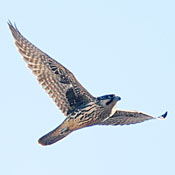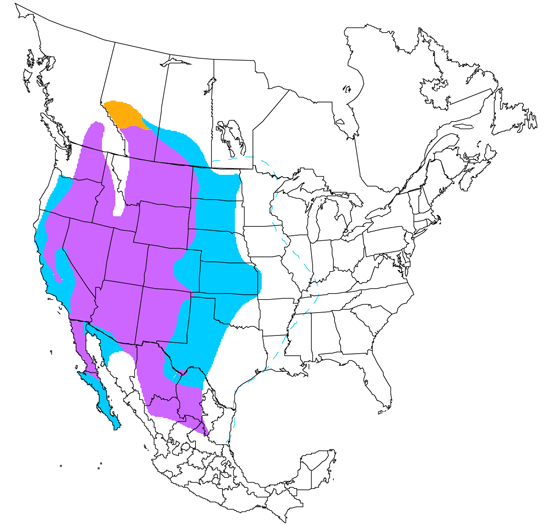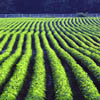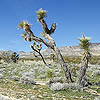Prairie Falcon
Falco mexicanus

Hawk Like
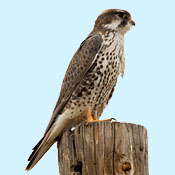
Length: 20 in. (50 cm )
Typically found in open habitats of desert, grasslands, meadows and agricultural fields, it is most often seen sitting on top of a tall telephone pole or an isolated tree. This large falcon hunts mainly for small mammals and small to medium-sized birds, but it will also take reptiles and large grasshoppers. It forages by flying over the prey and stooping down on them and also by diving from its high isolated perch. The nest is located on a high cliff ledge or rock crevice over open habitat.
The four-digit banding code is PRFA.
Bibliographic details:
- Article: Prairie Falcon
- Author(s): Dr. Biology
- Publisher: Arizona State University School of Life Sciences Ask A Biologist
- Site name: ASU - Ask A Biologist
- Date published: 13 Jul, 2017
- Date accessed: 25 May, 2025
- Link: https://askabiologist.asu.edu/activities/bird/prairie-falcon
APA Style
Dr. Biology. (Thu, 07/13/2017 - 15:38). Prairie Falcon. ASU - Ask A Biologist. Retrieved from https://askabiologist.asu.edu/activities/bird/prairie-falcon
Chicago Manual of Style
Dr. Biology. "Prairie Falcon". ASU - Ask A Biologist. 13 Jul 2017. https://askabiologist.asu.edu/activities/bird/prairie-falcon
MLA 2017 Style
Dr. Biology. "Prairie Falcon". ASU - Ask A Biologist. 13 Jul 2017. ASU - Ask A Biologist, Web. https://askabiologist.asu.edu/activities/bird/prairie-falcon
Be Part of
Ask A Biologist
By volunteering, or simply sending us feedback on the site. Scientists, teachers, writers, illustrators, and translators are all important to the program. If you are interested in helping with the website we have a Volunteers page to get the process started.



